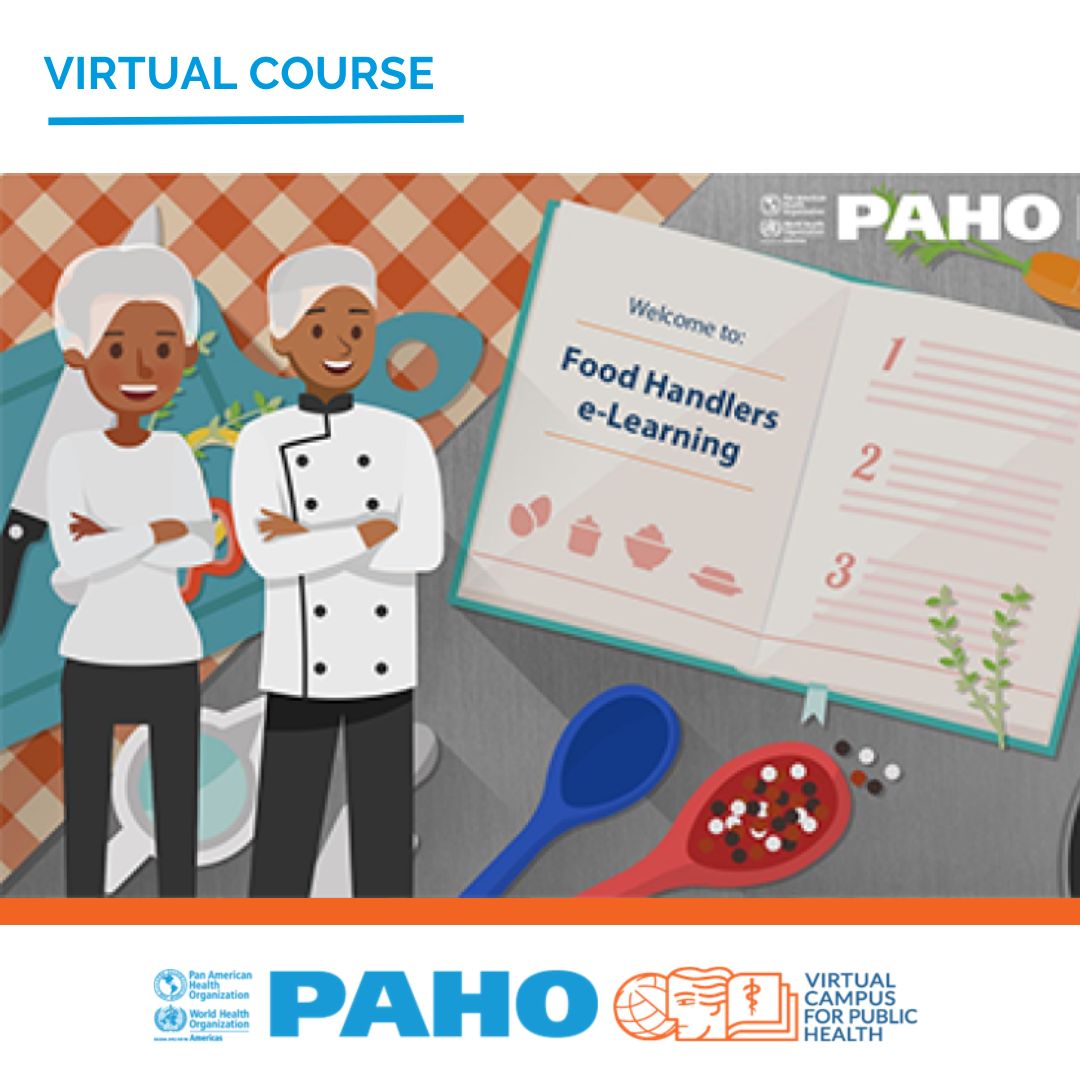
Introduction to the course
Food-borne diseases (FBDs) are a major cause of illnesses worldwide, caused by ingesting food contaminated with microorganisms or chemicals. According to the World Health Organization (WHO), an estimated 1.8 million people die due to diarrhoeal illnesses each year, with 70% being food-borne. The hazards that cause FBD may occur in the different stages of the food chain (from primary production to table). If contaminated food reaches the consumer it may have an impact on public health and cause economic damage to the establishments involved in food preparation and sale.
Good manufacturing practices (GMPs) greatly reduce the risk of food becoming contaminated by biological, chemical or physical agents. As public health inspectors are responsible for ensuring that quality is maintained across the food production chain, it is paramount that they are knowledgeable on GMPs. Furthermore, food handlers need to be taught the proper techniques required to reduce the risk of contaminations. Fortunately, the measures for preventing food contamination are very simple and may be applied by anyone who handles food, by following easy rules for hygienic food handling.
The purpose of this training is to provide people who handle food the information needed to facilitate and apply good food handling practices. In addition, it seeks to provide basic information about food safety that countries may adapt to their own needs.
The training is organized into three (3) modules focusing on the following topics: (1) food hazards; (2) Food-borne diseases (FBDs); and (3) hygienic measures to prevent food contamination. The evaluation at the end, is designed to assess the knowledge acquired during the course regarding the importance of hygienic food handling for public health.
Course description and audience
The course includes a series of rich-media, interactive modules that incorporate lectures, case studies, short quizzes and a Final Exam. The course also includes explanatory notes, resources and student and instructor manuals to help the audience easily understand the topics. The target audience is food handlers across the world.
Course terminal objective
The main objectives of the course are:
- Increase understanding among food handlers regarding basic food safety and food hygiene measures.
- Provide knowledge on the main causes of food-borne diseases and ways to prevent food contamination.
- Emphasize the importance of personal hygiene and good food handling practices.
- Highlight the correct steps of cleaning of utensils and waste disposal.
Estimated course length
5 hours
Course Structure
Course Introduction
Module 1: Food Hazards
Module 2: Food-borne Diseases
Module 3: Hygiene measures to prevent food contamination
Evaluation and certification
Each module includes exercises for participants to test their learning. At the end of the training, a general quiz will evaluate the participants’ knowledge.
Upon completion of the three modules and quiz, participants will be required to complete a Final Exam designed to evaluate their knowledge gained from the information received in the course.
Participants multiple opportunities to achieve the required score of 70% or higher.
Course Completion Certificates issued by the Pan American Health Organization (PAHO) can be downloaded upon:
1. achievement of the required score of 70% or higher, and
2. completion of the VCPH Quality Survey.
References and useful readings
Food Handlers Student Manual: http://iris.paho.org/xmlui/handle/123456789/34130
Food Handlers Instructor Manual: http://iris.paho.org/xmlui/handle/123456789/34129

